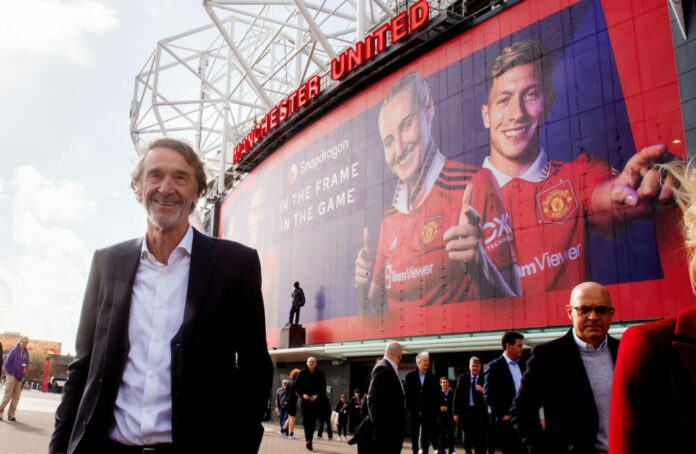Jim Ratcliffe’s Alleged “Five Step Plan” for Man United: Feasible or Fiction?
Reimagining Recruitment: Youth over Experience?
In an eye-catching piece by Mark Goldbridge on “Mark Goldbridge That’s Entertainment!”, Manchester United’s prospective new owner Jim Ratcliffe’s “Five Step Plan” was brought under the microscope. According to Goldbridge, citing The Sun, the plan includes some radical shifts in the club’s recruitment and management strategies. The first notable pillar of this plan imposes an age limit of 25 on new signings. While this could energize the squad with youthful zeal, Goldbridge retorts, “There will definitely be a focus on signing younger players, but we’re not going to not sign anyone over 25-years-old.” This stance makes practical sense—after all, experience is as crucial as youthful exuberance in a league as demanding as the Premier League.
Steering Clear of Stardom: No Galacticos
The second step of the purported plan rejects the signing of ‘Galacticos.’ It’s a strategy that resonates with a financially prudent approach, especially in an era where astronomical transfer fees are common. However, Goldbridge sarcastically quips, “No Galacticos? Well, we can’t afford them anyways and they wouldn’t want to come.” This comment underlines a harsh reality—the elite players might not currently view United as their preferred destination, given the club’s recent struggles on and off the pitch.
Centralising Control: Technical Director’s Domain
Ratcliffe’s third proposal is to centralize the style of play decisions to the Technical Director, Jason Wilcox. This step suggests a more structured approach to team building, where consistency in playing style across all levels is prioritized. However, Goldbridge is sceptical about the removal of the manager’s input, stating, “I think the manager would need to have a bit of input but it’s not going to work like that.” Indeed, while the idea aims to establish a cohesive identity, the exclusion of the manager from such crucial discussions might not bode well for practical application.
Enhanced Role of INEOS: A New Approach to Transfers?
The fourth and fifth points revolve around the operational dynamics between the manager and the new ownership. The manager would specify positional needs rather than specific players, with INEOS then providing a list of three potential signings for each required position. Goldbridge’s reaction? “I’ve never heard so much b****cks!” His blunt dismissal underscores a potential disconnect between theoretical planning and the gritty reality of football management, where managers traditionally prefer to handpick their squad members.
A Strategic Shift or A Misguided Missile?
So, what do we make of Ratcliffe’s alleged masterplan? On paper, the strategy reflects a modern, structured approach aimed at long-term sustainability. It suggests a shift from star-powered, short-term fixes to a philosophy-based rebuild. Yet, as Goldbridge articulately points out, the practicality of such sweeping changes is debatable. The involvement of a Technical Director in setting playing styles is progressive but stripping significant powers from the manager might stir discontent.
Moreover, the focus on youth, while commendable, should not become an inflexible rule. Football history is replete with instances where players in their late twenties or early thirties have made substantial contributions to their teams. Thus, while the idea of rejuvenating the squad is appealing, a balance must be struck to blend youth with experience.
In conclusion, while Ratcliffe’s vision for Manchester United promises a blueprint for a disciplined and sustainable future, it clashes with the realities of football management. The reactions from seasoned observers like Goldbridge provide a necessary counterbalance to the optimism that such theoretical plans often inspire. Whether this plan will be implemented or will remain in the realm of speculative journalism is yet to be seen. But it certainly sets the stage for a fascinating debate on the future direction of one of the world’s most storied football clubs.


